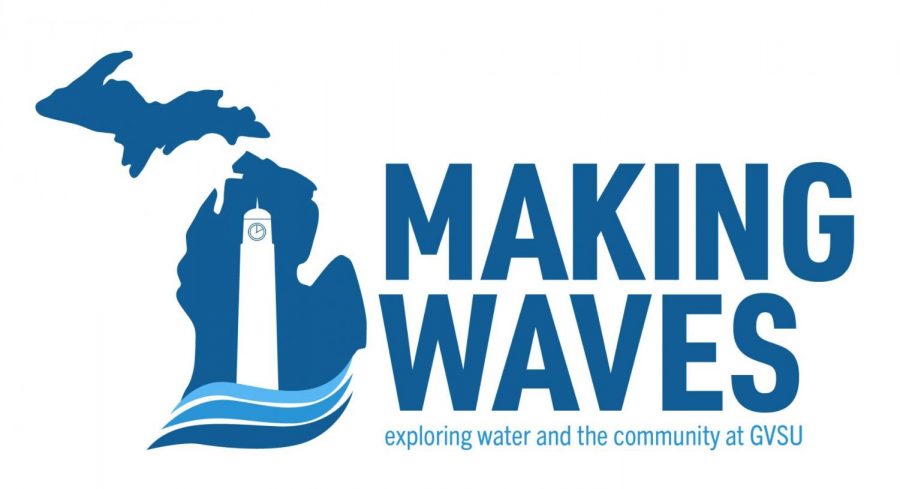Making Waves About Water Initiative spurs interdisciplinary movement
Sep 30, 2019
At Grand Valley State University, a new movement is on the horizon: The Making Waves Initiative (MWI). The Initiative was created by Provost Maria Cimitile and has continued its push through the work of professors and co-leaders of the Initiative Peter Wampler and Kathryn Remlinger, along with over seventy students, faculty and staff.
GVSU Professor of English Kathryn Remlinger described the initiative as having four main goals.
“The first goal is interdisciplinary collaboration: creating cooperative learning for students, staff and faculty and within the community,” Remlinger said. “The second goal is geographic and institutional identity: defining traits of GVSU as a liberal education institution in West Michigan. The third goal is for the initiative to have good resources and activities: synthesizing learning across disciplines, locally, globally and with intention. The last goal of the initiative is to empower students to make waves through advocacy and community engagement.”
To meet these goals, there will be ten teams of “WaveMakers” who will work on external funding, student research and creative projects, field trips and connections with campus and community partners.
A major factor and first goal in spreading the word about the Making Waves Initiative is interdisciplinary collaboration, and Remlinger says that there are several ways to achieve this.
“I am a socio-cultural linguist and Peter (Wampler) is a hydro-geologist. I think the varied interdisciplinary backgrounds of the leadership team and all the WaveMakers is essential to its success,” Remlinger said. “As we collaborate, we learn from each other and share insights that strengthen our interdisciplinary awareness and collaboration.”
A range of water-based events are held throughout the year to support this goal, such as the Sept. 19 visit from Peter Annin, an expert on regional and global water diversion and author of “The Great Lakes Water Wars.”
“We also utilize films that draw on themes and approaches from a range of disciplines a well as gain steam from our Big Splash Week,” Remlinger said.
The Making Waves Initiative has had a strong start and they intend to build on it moving forward.
“We have events and activities planned each month. Some of these events and activities are developed and organized by the MWI teams; some are in collaboration with university colleges, departments and programs; while others are in collaboration with community partners,” Remlinger said.
“Another tactic that we are utilizing is compiling and publicizing a list of courses across our campuses that include water themes,” Remlinger said. “These courses range from anthropology to biology to zoology. The list of these courses is posted on our website so that students can easily find water-related courses that meet their academic and personal interests.”
The website also includes sponsored interdisciplinary events and activities with university departments, colleges and programs such as “Poetry on the Rapid,” which is a month-long poetry exhibition inside the Rapid busses.
As the Making Waves Initiative moves forward and gains momentum, co-leader Remlinger is excited about the opportunity to collaborate with students and colleagues across disciplines and across campus.
“The initiative reflects how I value liberal education, the environment, science, and a worldview that encompasses global and local communities,” Remlinger said. “Equally important is how MWI mirrors the interdisciplinary focus of my courses and research, and more personally, my passion for nature, the outdoors and the Great Lakes.”


























